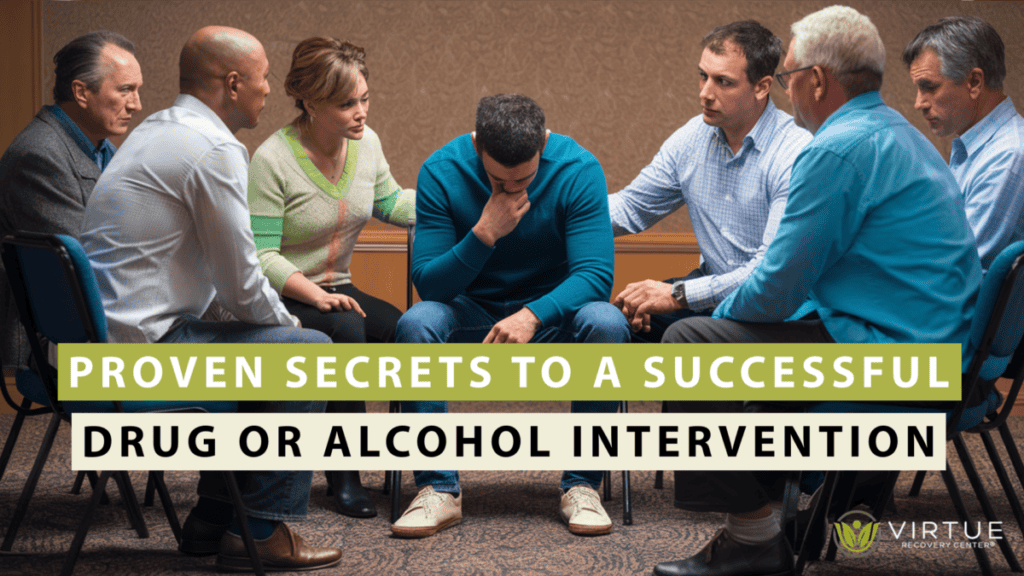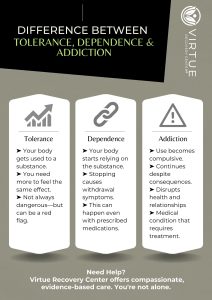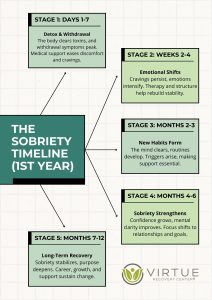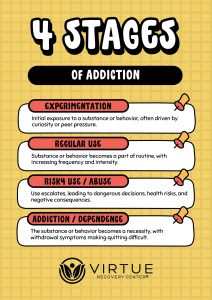Intervening in the life of a loved one to address drug or alcohol addiction is a daunting but sometimes necessary action that can help them recover their health and life. This article discusses the successful strategies for implementing and holding a successful intervention.
Key Takeaways
| Focus Area | Details |
| Professional Guidance | Utilizing a professional interventionist increases success rates. |
| Preparation | Extensive planning and role rehearsal are crucial. |
| Support System | Engaging in a strong support network enhances effectiveness. |
| Follow-Up | Continuity of care post-intervention is essential for recovery. |
Understanding the Need for Intervention
An intervention is not a meeting but a process strategically planned and conducted by friends and family of an addict, ideally under the direction of a professional, knowledgeable interventionist. Interventions offer the individual a structured opportunity to accept help and make changes before things worsen.
The Role of Professional Interventionists
Professional interventionists bring much knowledge, experience, and skill to organizing and conducting an intervention. They are taught to deal with the addict’s emotional volatility and resistance. Their presence can give the intervention sustained focus and productivity, which is crucial for keeping the session on track and productive. Professionals can also engage the family in preparation for possible reactions and how to manage them, a vital element of substance abuse treatment.
Make sure to vet the interventionist you have selected thoroughly. Speak with others who have had that particular interventionist and get feedback on how effective a communicator the interventionist was.
Invite Appropriate Participants
The selection of the intervention participants is critical. Usually, this group should consist of the people nearest to the person, including his or her family, close friends, and probably colleagues who are directly influenced by the person’s behavior. These participants should be individuals that the addict respects or relies on, which can make the intervention more powerful.
Use Clear and Specific Communication.
During the intervention, the participants must communicate their feelings and concerns clearly and precisely. This should be done without stereotypes or accusations, which can result in defensiveness. Pay attention to particular events and the emotional effect these have had. This method allows the addict to realize the tangible consequences of their addiction.
Alternative Method – The CRAFT Model
CRAFT, or Community Reinforcement and Family Training, is an intervention approach designed for families with a loved one who is suffering from substance addiction but is not ready to make changes or seek help. CRAFT is an alternative way of learning communication. CRAFT teaches a series of strategies, such as:
- How to communicate positively
- Positive reinforcement to focus on what is working
- Development of a profound understanding of what it means to be self-sufficient
CRAFT’s approach is positive and encourages healthy, constructive changes. It is a behavioral approach focused on changing behaviors. CRAFT’s approach results in users seeking treatment at a rate of about 65% to 75%, much higher than other methods.
Prepare Thoroughly in Advance for Your Intervention
For an intervention to be successful, it’s essential to be well-prepared. This requires having close friends and family who are impacted by the individual’s substance abuse and who can speak earnestly about its effects on their lives. Proper planning results in decision-making, such as deciding on the order of speakers and rehearsing what each will say to avoid emotional outbursts or derailment of the meeting’s purpose.
It is important to pick an experienced interventionist who can lead the intervention, one who will moderate the conversation and control reactions. Also important is pre-arranging treatment options, as they provide immediate help and communicate urgency and support. Such a level of readiness makes the setting well organized, respectful, and targeted; therefore, the person is more likely to agree to seek help.
Successfully planning and executing a perfect intervention requires careful preparation and consideration of several key functions. Here are a few secrets to planning and executing the ideal intervention:
- Engage a Professional: A professional interventionist can offer expertise and objectivity. They have experience with the dynamics of addiction and can manage the emotional intensity of the intervention, ensuring that the process remains constructive.
- Prepare Thoroughly and Rehearse: Preparation is crucial. This includes deciding who will participate in the intervention, the order of participants, what will be said, and anticipating potential responses from the addicted person. Rehearsing the intervention with all participants can also be very helpful in maintaining focus and calm.
- Choose the Right Time and Place: Timing and the setting can significantly impact the outcome of an intervention. Choose a time when the person is least likely to be under the influence of substances and a place where they feel safe and comfortable.
- Use a Structured Format: A clear structure helps keep the intervention on track. Participants should speak in a predetermined order, expressing their concerns and feelings without blame or accusations, focusing instead on care and support.
- Pre-Intervention Preparation: Successful interventions require thorough planning. Each aspect needs to be carefully thought out and rehearsed, from who will speak to what they will say. This helps prevent the conversation from getting off-topic, confrontational, or emotionally charged.
- Creating a Supportive Environment: The intervention setting should be private and free from distractions, where the person feels safe and loved. This helps reduce anxiety and defensiveness.
- Communicating Effectively: Participants should express their feelings and thoughts without blame or judgment. This approach helps them understand the impact of their behavior and encourages them to accept help.
- Immediate Treatment Options: It is crucial to have immediate treatment options available and ready, such as those available at Virtue Recovery Las Vegas’s drug and alcohol addiction rehab program. This shows the person that help is readily available and that their support network is serious about their recovery.
Post-Intervention Strategies
After the intervention, it is important to have a plan, irrespective of the outcome. If the intervention is successful, the person should be admitted to a treatment program as soon as possible. If they reject help, however, all consequences mentioned during the intervention should be implemented to reinforce new boundaries and integrity.
Don’t accept ‘NO’ Immediately After Your Intervention
A ‘no’ from your loved one immediately after the intervention should not be taken as their final answer. The first reaction may be one of protection or denial because of the shock, fear, or not being prepared to confront their addiction. Be patient and maintain communication, supporting and reminding people of the reasons for and the importance of seeking treatment. Prompt them to think about what was said in the intervention and the benefits of treatment. Keep motivating and reminding them of the support available once they accept help.
Support should not stop at the end of the intervention. Continuously follow-up and encourage the individual to start and stay on track with their treatment plan. This can include accompanying them to therapy sessions, providing transportation, or helping with other logistical support to keep them engaged in their recovery.
How Can Specialized Programs for Veterans Benefit From Drug or Alcohol Intervention Techniques?
Specialized recovery programs for veterans can benefit greatly from incorporating drug or alcohol intervention techniques. By addressing substance abuse issues specific to veterans, these programs can provide targeted support and resources to help veterans overcome their challenges and successfully reintegrate into civilian life.
Treatment Approaches: The Need for Medical Detox and Rehabilitation
Recognizing addiction as a disease necessitates a structured treatment approach, starting with detox that addresses the physical dependence on substances. Alcohol and drug treatment is a core component of treatment and includes medically supervised withdrawal under the full supervision of a medical professional and prepares an individual for behavioral therapies and support programs. Learn more about our specific approaches to detox on our addiction treatment page and page.
Conclusion
A well-planned and carried-out intervention can be pivotal in a person’s recovery journey. Employing professional help, preparing thoroughly, and maintaining a supportive approach can significantly increase the chances of a successful intervention.
FAQ: Successful Drug or Alcohol Interventions
What is an intervention?
An intervention is a structured conversation between a person struggling with addiction and their loved ones, facilitated by a professional or conducted solely by the group, aimed at encouraging treatment.
When is the right time to hold an intervention?
The best time is when the person is sober and calm, ensuring they are more likely to understand and absorb the concerns expressed by their loved ones.
Who should be involved in an intervention?
Include close family members, friends, and colleagues who are directly affected by the individual’s substance use and are supportive of their journey toward recovery.
What should be discussed during an intervention?
Focus on expressing personal feelings about how the addiction has affected you, avoid blame, and emphasize the need for treatment, presenting clear options and support.
How should I react if the intervention doesn’t go as planned?
Be prepared for resistance; regardless of the outcome, continue to offer support and seek professional help if necessary. Always follow through on any consequences discussed if the individual refuses treatment.
What is the CRAFT Model of Intervention?
The CRAFT model of intervention is a behavioral approach that teaches families effective strategies for helping their loved ones engage in treatment. It focuses on positive reinforcement rather than confrontation.
Citations
Intervention: Help a loved one overcome addiction – www.mayoclinic.org [*]
How to Help a Friend with Addiction – Partnership to End Addiction – https://drugfree.org [*]
Drug Abuse & Addiction: Effects on Brain, Risk Factors, Signs www.webmd.com [*]
Evidence Based Psychosocial Interventions in Substance… – www.ncbi.nlm.nih.gov [*]
Staging an intervention for addiction | UKAT – www.ukat.co.uk [*]
The CRAFT Approach to Substance Abuse Intervention – www.verywellmind.com [*]
Community Reinforcement and Family Training (CRAFT) – www.apa.org [*]













